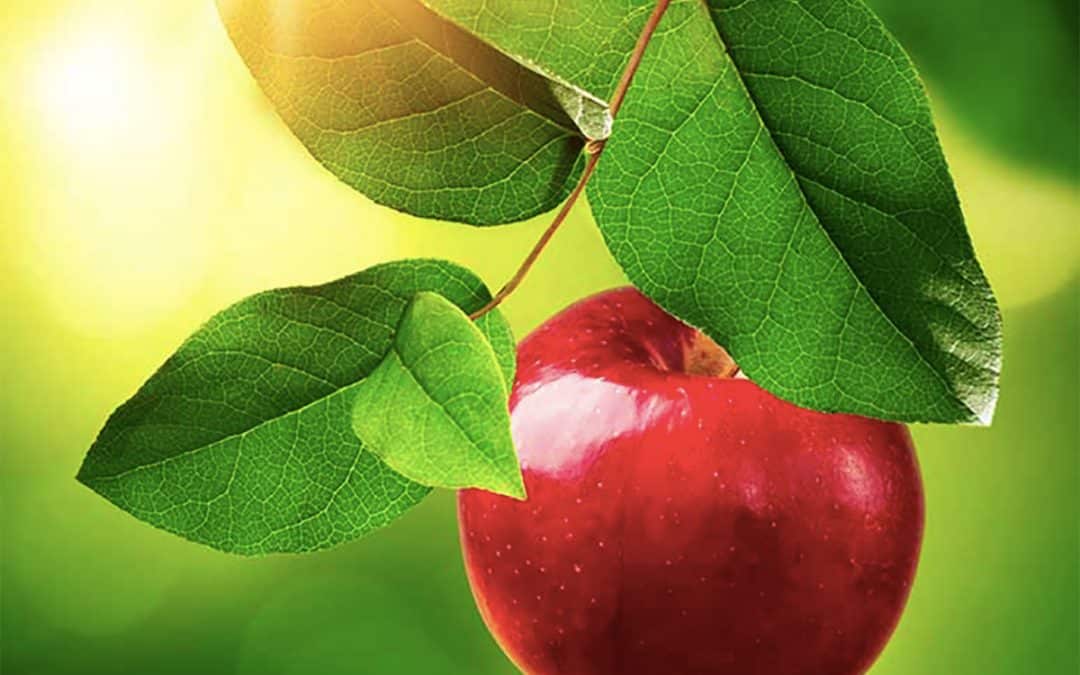DISSATISFACTION:
The Mother of all Sins
Dissatisfaction is a pandemic far deadlier than coronavirus.
What was the original sin? If you say it was eating the forbidden fruit, you’d be wrong. The sin that turned paradise into thorns was not taking that bite, but a prior transgression. Until we deal with that sin, we’ll never deal with those that sprang from it.
I’m talking about dissatisfaction with what God has given us.
The United States of Discontent
The poorest Americans enjoy luxuries that Medieval kings couldn’t imagine. We enjoy freedoms, privileges and opportunities beyond the grasp of almost everyone in human history. Yet, if you listen to the grousing that goes on today, you might wonder if we are all that blessed.
In a year when 200,000 Americans so far have died of coronavirus, where forty million have lost their jobs and uncertainty about the future hangs over our national psyche like a black cloud, it’s no wonder that a social commentator called 2020 annus horribilis [the year of horror]. This “horrible year” reminded us there are social injustices yet to be remedied, rage that can’t be ignored, societal wounds that need healing, and divisions that are deeper than at any time since the Civil War. Whatever your social or political views, it’s increasingly difficult to feel positive about the near future.
Maybe that’s why, according to a report of the Center for Disease Control [CDC], 75% of young adults report high levels of anxiety and depression, and more than 25% contemplated suicide in 2020. An August 18 report, the LA Times said that domestic violence in the U.S. doubled during the lockdown. In April, the United Nations reported “a horrifying global surge in domestic violence.” A plethora of surveys show that Americans have high levels of dissatisfaction with everything from schools to spouses to sports to religion to political candidates. A recent Rand Research headline said, “Americans are United in their Dissatisfaction.”
Discontent in Paradise
You may think that God’s first command to Adam was not to eat the fruit of the tree of the knowledge of good and evil. [Genesis 2:17] Yet, it wasn’t. His first charge was to take care of paradise and to “eat from any tree in the garden”—except for that one! [Genesis 2:15&16] In other words, they were to gorge themselves from the orchards he gave them, and to make them even more bountiful and beautiful.
The first commandment brought life. The second, death. They were tempted by the forbidden fruit because they became dissatisfied with the plenty they had. They were seduced by the myth that the grass is greener on the other side of the fence. King Solomon told his son how to avoid the lure of adultery: “Drink water from your own well.” [Prov. 5:18] In other words, “Delight yourself in the wife God has given you.” God gave Adam and Eve a beautiful paradise, but they wanted the one thing they didn’t [or couldn’t] have. Like them, we too often fixate on what we don’t [or can’t] have, instead of feasting on the blessings we do have.
Holy Dissatisfaction
If you are dissatisfied with the status quo, good! St. Paul speaks of not yet being conformed to the image of Christ. He says that he must strive after that goal. [Phil. 3:13] As good as the garden was in paradise, Adam and Eve were told to make it better. We still have that call to make earth a better place. The late Senator Robert Kennedy put it well: “Some men see things as they are, and ask why. I dream of things that never were, and ask why not.”
Like the Old Testament prophets, we should burn with a holy dissatisfaction against social injustice, corruption in high places and the devastation wrought by immorality. Like Jeremiah, we should weep at death in the city—200,000 of our fellow citizens who have died in a pandemic, and the grief that will wound their widows and orphans for years to come. We should be dissatisfied with things that dissatisfy our Lord, get angry at the injustices that anger him and grieve the things that cause him sorrow!
Unholy Dissatisfaction
Still, like St. Paul we should “learn the secret of being content in any and every situation, whether well fed or hungry, whether living in plenty or in want.” [Phil. 4:12] That’s so hard. Even in a paradise, before they fell into sin, our first parents were discontented with perfection. As sinful people in a broken world, contentment is close to impossible. That’s why Paul added, “I can do all thing through Christ who gives me the strength.” [Phil. 4:13] That strength is what Christ gives to enable us to find happiness with God’s blessings in the midst of unhappy times.
Count your blessings. When was the last time you focused on the good things in your life? I think that this was the “secret” that Paul discovered regarding contentment. You may not have all you want, but, everywhere in the world, there are billions of people wishing that they could have what you possess. Make it a daily discipline to reflect on the orchard of goodness God has given you, rather than grousing about the fruit that has been withheld.
Enjoy your garden. Before the sin of adultery occurs, there is usually the greater sin of neglecting to nurture and enjoy the spouse God has already given. Enjoy your garden, and you won’t have the time or interest in the forbidden fruit. Enjoy your God, yourself, your kids, your grandchildren, your friends, the work of your hands, the privileges you’ve been granted, and the opportunities you have to give your world a better future.
For sure, there are plenty of things to make you weep in this fallen and twisted world. But don’t neglect to enjoy even the most ordinary delights it also affords.
Whether you are an optimist or pessimist in these difficult days, maybe you can take some comfort in something I’ve thought about lately: Glass half empty, or glass half full—either way, you won’t be going thirsty!
Dr. Bob Petterson
Legacy Imperative

